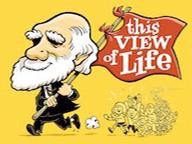Faculty News
—
Prof. Jonathan Haidt on the philanthropy of financiers
—

Excerpt from The New York Times -- “'These people have an incredible problem-solving focus,' said Jonathan Haidt, a professor of business ethics at the New York University Stern School of Business. Mr. Haidt pointed out why private equity specifically might fit this mold. 'Private equity is all about coming in, finding the inefficiencies, ripping them out, putting in better procedures and making the thing more valuable.'”
Faculty News
—

Excerpt from The New York Times -- “'These people have an incredible problem-solving focus,' said Jonathan Haidt, a professor of business ethics at the New York University Stern School of Business. Mr. Haidt pointed out why private equity specifically might fit this mold. 'Private equity is all about coming in, finding the inefficiencies, ripping them out, putting in better procedures and making the thing more valuable.'”


















